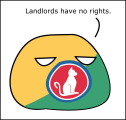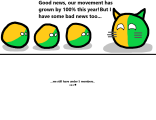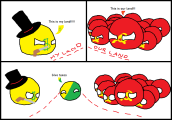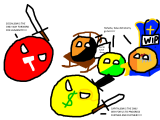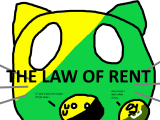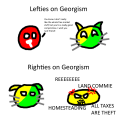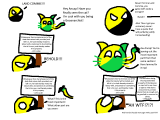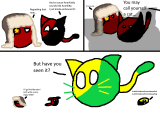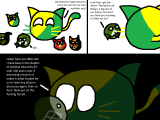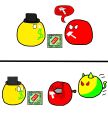imported>Polcompbot m (Council vote: removed glow design) |
No edit summary |
||
| (4 intermediate revisions by 4 users not shown) | |||
| Line 1: | Line 1: | ||
<!--there used to be a message-box here--> | |||
{{Ideology | {{Ideology | ||
|textcolor=D53831 | |textcolor=D53831 | ||
| Line 19: | Line 19: | ||
[[File:Soc-h.png]] Socialism according to [[File:Gravelism.png]] [[Social Libertarianism#Libertarian Social Democracy|The Gravel Institute]]<br> | [[File:Soc-h.png]] Socialism according to [[File:Gravelism.png]] [[Social Libertarianism#Libertarian Social Democracy|The Gravel Institute]]<br> | ||
[[File:Capindecay.png]] Capitalism's Last Ditch (by [[File:Karl_Marx.png]] [[Marxism|Karl Marx]])<br> | [[File:Capindecay.png]] Capitalism's Last Ditch (by [[File:Karl_Marx.png]] [[Marxism|Karl Marx]])<br> | ||
[[File:Christeco.png]] Social Gospel (By [[ | [[File:Christeco.png]] Social Gospel (By [[File:ProtTheo.png]] [[Protestant Theocracy|Charles Oliver Brown]]) | ||
}} | }} | ||
|alignments= | |alignments= | ||
| Line 48: | Line 48: | ||
[[File:Socgeo.png]] [[Social Georgism]]<br> | [[File:Socgeo.png]] [[Social Georgism]]<br> | ||
[[File:Angeo.png]] [[Geoanarchism]]<br> | [[File:Angeo.png]] [[Geoanarchism]]<br> | ||
[[File: 3princ.png]] [[Tridemism]] [[File: 3princ-col.png]]<br> | [[File:3princ.png]] [[Tridemism]] [[File:3princ-col.png]]<br> | ||
[[File:Steinval.png]] [[Steiner-Vallentyne School]]<br> | [[File:Steinval.png]] [[Steiner-Vallentyne School]]<br> | ||
[[File:Chilib.png]] [[Chicago School]]<br> | [[File:Chilib.png]] [[Chicago School]]<br> | ||
[[File:Neoliberal-icon.png]] [[Neoliberalism]]<br> | [[File:Neoliberal-icon.png]] [[Neoliberalism]]<br> | ||
[[File: NatProg-0.png]] [[Bull Moose Progressivism]]<br> | [[File:NatProg-0.png]] [[Bull Moose Progressivism]]<br> | ||
[[File:Socliber.png]] [[Social Libertarianism]]<br> | [[File:Socliber.png]] [[Social Libertarianism]]<br> | ||
[[File:Soclib.png]] [[Social Liberalism]] (Early on, Europe)<br> | [[File:Soclib.png]] [[Social Liberalism]] (Early on, Europe)<br> | ||
[[File:Nordmodel.png]] [[Nordic Model]]<br> | [[File:Nordmodel.png]] [[Nordic Model]]<br> | ||
[[File:Fabian.png]] [[Fabian Socialism]] | [[File:Fabian.png]] [[Fabian Socialism]]<br> | ||
[[File:Nrx.png]] [[Neoreactionaryism]]<br> | |||
}} | }} | ||
|song=[https://www.reddit.com/r/georgism/comments/gmnf8l/land_songs_for_the_people_land_monopoly_must_clear/ Land monopoly must clear!] | |song=[https://www.reddit.com/r/georgism/comments/gmnf8l/land_songs_for_the_people_land_monopoly_must_clear/ Land monopoly must clear!] | ||
| Line 68: | Line 69: | ||
[[File:Geokitty.png]] Cats<br> | [[File:Geokitty.png]] Cats<br> | ||
[[File:Geokitty.png]] [[File:Gigachad.png]] People seeing cats<br> | [[File:Geokitty.png]] [[File:Gigachad.png]] People seeing cats<br> | ||
[[File: | [[File:HenryGeorge.png]] Henry George<br> | ||
[[File:Sun Yat-Sen.png]] Sun Yat-Sen<br> | [[File:Sun Yat-Sen.png]] Sun Yat-Sen<br> | ||
[[File:Church.png]] Winston Churchill<br> | [[File:Church.png]] Winston Churchill<br> | ||
| Line 78: | Line 79: | ||
|theorists=[[File:PanAmer.png]] '''Americas''' {{Collapse| | |theorists=[[File:PanAmer.png]] '''Americas''' {{Collapse| | ||
*[[File:Hayes.png]] [[Mediocracy|Rutherford B. Hayes]] (1822-1893) [[File:Cball-US.png]] USA | *[[File:Hayes.png]] [[Mediocracy|Rutherford B. Hayes]] (1822-1893) [[File:Cball-US.png]] USA | ||
*[[File: | *[[File:HenryGeorge.png]] [[Classical Liberalism|Henry George]] (1839-1897) [[File:Cball-US.png]] USA | ||
*[[File:Antiimp.png]] [[Radicalism|Jose Marti]] (1853-1895) [[File:Cball-Cuba.png]] Cuba | *[[File:Antiimp.png]] [[Radicalism|Jose Marti]] (1853-1895) [[File:Cball-Cuba.png]] Cuba | ||
*[[File:Pragmat.png]] [[Machiavellianism|John]] [[Social Liberalism|Dewey]] (1859-1952) [[File:Cball-US.png]] USA | *[[File:Pragmat.png]] [[Machiavellianism|John]] [[Social Liberalism|Dewey]] (1859-1952) [[File:Cball-US.png]] USA | ||
| Line 123: | Line 124: | ||
His father [[File:Physiocracypix.png]] [[Physiocracy]] was quite old and absent when he was born, so he was mostly brought up by his uncle [[File:Clib.png]] [[Classical Liberalism]]. | His father [[File:Physiocracypix.png]] [[Physiocracy]] was quite old and absent when he was born, so he was mostly brought up by his uncle [[File:Clib.png]] [[Classical Liberalism]]. | ||
Of all his cousins, he's generally on best terms with [[File:Lib.png]] [[Liberalism]]; but he also tries to keep friendly with [[File:Cap.png]] [[Capitalism]] and [[File:Soc.png]] [[Socialism]] even though they seldom leave room for his views, especially when they're in the same room together... | Of all his cousins, he's generally on best terms with [[File:Lib.png]] [[Liberalism]]; but he also tries to keep friendly with [[File:Cap.png]] [[Capitalism]] and [[File:Soc-h.png]] [[Socialism]] even though they seldom leave room for his views, especially when they're in the same room together... | ||
==History== | ==History== | ||
| Line 134: | Line 135: | ||
Historically Georgism spread around the whole world, with important proponents in the Americas, Europe, Asia, and Oceania. | Historically Georgism spread around the whole world, with important proponents in the Americas, Europe, Asia, and Oceania. | ||
Henry George himself became a political figure, running twice for mayor of New York City, in 1886 and 1898, being runner-up the first time (though in front of future president Teddy Roosevelt) and suffering from a fatal stroke in 1897 during his second campaign. Many of his early supporters styled themselves "Single Taxers" since it was envisioned that the land value tax would replace all other taxes. For a short period of time during the end of the 19th century, the Single Tax movement dominated the political labor associations in the United States, but it was largely supplanted by the [[File:Ormarxf.png]] [[Marxism|Marxist]] ideology as this came to be generally accepted as the true form of [[File:Soc.png]] [[Socialism]] both in the US and elsewhere. | Henry George himself became a political figure, running twice for mayor of New York City, in 1886 and 1898, being runner-up the first time (though in front of future president Teddy Roosevelt) and suffering from a fatal stroke in 1897 during his second campaign. Many of his early supporters styled themselves "Single Taxers" since it was envisioned that the land value tax would replace all other taxes. For a short period of time during the end of the 19th century, the Single Tax movement dominated the political labor associations in the United States, but it was largely supplanted by the [[File:Ormarxf.png]] [[Marxism|Marxist]] ideology as this came to be generally accepted as the true form of [[File:Soc-h.png]] [[Socialism]] both in the US and elsewhere. | ||
In the UK, both the Labour Party and the Liberal Democrats (more specifically the predecessor, the Liberal Party) have a history of support for land value taxation, especially during the first half of the 20th century. In a [https://books.google.dk/books?id=9rzhBwAAQBAJ&pg=PT6&source=gbs_selected_pages&cad=3#v=onepage&q=Henry%20George&f=false 1906 survey], Henry George was listed as the favourite author of 12 Labour MPs, coming in at a 5th place after authors such as Charles Dickens and "The Bible", and with nobody listing [[File:Ormarxf.png]] [[Marxism|Karl Marx]]. The British [[File:Lib.png]] [[Social Liberalism|Liberal]] support for Georgism peaked with the famous [[w:People%27s_Budget|People's Budget]] including a land value tax, which lead to a constitutional crisis due to the resistance of the House of Lords, the majority [[File:Con-t.png]] [[Conservatism|Conservative]] landowners being strongly opposed to such a tax. The budget was eventually forced through, and as a result the House of Lords lost its power to veto budgets - but only after two general elections in 1910. The land value tax was never fully implemented however, since it was at first stalled (among other things by the First World War) and then cancelled by the coalition government in 1920. | In the UK, both the Labour Party and the Liberal Democrats (more specifically the predecessor, the Liberal Party) have a history of support for land value taxation, especially during the first half of the 20th century. In a [https://books.google.dk/books?id=9rzhBwAAQBAJ&pg=PT6&source=gbs_selected_pages&cad=3#v=onepage&q=Henry%20George&f=false 1906 survey], Henry George was listed as the favourite author of 12 Labour MPs, coming in at a 5th place after authors such as Charles Dickens and "The Bible", and with nobody listing [[File:Ormarxf.png]] [[Marxism|Karl Marx]]. The British [[File:Lib.png]] [[Social Liberalism|Liberal]] support for Georgism peaked with the famous [[w:People%27s_Budget|People's Budget]] including a land value tax, which lead to a constitutional crisis due to the resistance of the House of Lords, the majority [[File:Con-t.png]] [[Conservatism|Conservative]] landowners being strongly opposed to such a tax. The budget was eventually forced through, and as a result the House of Lords lost its power to veto budgets - but only after two general elections in 1910. The land value tax was never fully implemented however, since it was at first stalled (among other things by the First World War) and then cancelled by the coalition government in 1920. | ||
Latest revision as of 23:03, 29 February 2024
Georgism, also called Geoism, is an economically centrist, generally culturally center-left, and moderately libertarian ideology that is typically placed in the lower middle of the political compass.
Georgism seeks to achieve justice, prosperity, and progress through a fair distribution of economic rent and the annihilation of deadweight loss from inefficient taxes and harmful monopolies. He believes that there should only be one tax, being the land value tax. He views property rights as only extending to the properties of labor and capital, and since land is neither, it's free real estate. Though his main bit is only having one tax, he also generally supports free markets and free trade, and he sometimes promotes a citizen's dividend and pollution taxes, as a treat.
Overall, his ideology is centered around land & its distribution; his beliefs are often summed up with the phrase (usually in all caps) "landlords don't have rights", though this is an exaggeration. A more accurate phrase would be “no one has the right to be a landlord”.
While his views on land rights and natural resource ownership are very collectivist, to combat unjust inequality, most of his other views are liberal and relatively individualistic, focusing on creating efficiency in the economy so that wealth and prosperity can be created. In this way, he is similar to many other ![]() capitalist ideologies, though with the major difference of land ownership.
capitalist ideologies, though with the major difference of land ownership.
His father ![]() Physiocracy was quite old and absent when he was born, so he was mostly brought up by his uncle
Physiocracy was quite old and absent when he was born, so he was mostly brought up by his uncle ![]() Classical Liberalism.
Classical Liberalism.
Of all his cousins, he's generally on best terms with ![]() Liberalism; but he also tries to keep friendly with
Liberalism; but he also tries to keep friendly with ![]() Capitalism and
Capitalism and ![]() Socialism even though they seldom leave room for his views, especially when they're in the same room together...
Socialism even though they seldom leave room for his views, especially when they're in the same room together...
History
Georgism is named after the American journalist and political economist Henry George (1839 - 1897). The defining theories and policies of Georgism stem from Henry George's 1879 book, Progress and Poverty, which sold more than any other book in the US except the Bible during the 1890s. In this book, George sought to find the reason why poverty persists even when wealth increases and technology advances; coming to the conclusion that private extraction of rents from land is the main culprit keeping down both profits/interest from capital and wages from labor.
Henry George is considered one of the last classical economists, largely building on the foundation of ![]() Classical Liberals such as Adam Smith and John Stuart Mill. It was observed by them that a tax on what they called "ground-rents" and "the ordinary rent of land", the economic rent from location and natural resources, was the most just and efficient form of taxation, and this notion was followed by Henry George to its logical conclusion: replacing all other taxes with a tax on ground/land rents, i.e. a land value tax.
Classical Liberals such as Adam Smith and John Stuart Mill. It was observed by them that a tax on what they called "ground-rents" and "the ordinary rent of land", the economic rent from location and natural resources, was the most just and efficient form of taxation, and this notion was followed by Henry George to its logical conclusion: replacing all other taxes with a tax on ground/land rents, i.e. a land value tax.
The movement itself is said to be much older than George, and a long list of economists, political figures, agitators, and land reformers are considered fore-runners: From the Gracchi brothers of the ![]() Roman Republic to the Diggers of England, the
Roman Republic to the Diggers of England, the ![]() Physiocrats of France, and other
Physiocrats of France, and other ![]() Enlightenment Thought thinkers such as Thomas Paine with his Agrarian Justice and the concept of a citizen's dividend. Several
Enlightenment Thought thinkers such as Thomas Paine with his Agrarian Justice and the concept of a citizen's dividend. Several ![]() Agrarian revolts around the world also reflect the struggle against private enclosure of common land and disproportionate taxation (such as poll tax) upon tenants, the poor, and working people - with tax exemption and other privileges for the landed nobility and rich landowners. Henry George is, for the Georgists, the pinnacle of this movement for land reform and economic justice. Some modern proponents prefer to use the term "Geoism" to broaden the scope. Coincidentally "Geo-" in both cases comes from the Ancient Greek word for earth/land.
Agrarian revolts around the world also reflect the struggle against private enclosure of common land and disproportionate taxation (such as poll tax) upon tenants, the poor, and working people - with tax exemption and other privileges for the landed nobility and rich landowners. Henry George is, for the Georgists, the pinnacle of this movement for land reform and economic justice. Some modern proponents prefer to use the term "Geoism" to broaden the scope. Coincidentally "Geo-" in both cases comes from the Ancient Greek word for earth/land.

Historically Georgism spread around the whole world, with important proponents in the Americas, Europe, Asia, and Oceania.
Henry George himself became a political figure, running twice for mayor of New York City, in 1886 and 1898, being runner-up the first time (though in front of future president Teddy Roosevelt) and suffering from a fatal stroke in 1897 during his second campaign. Many of his early supporters styled themselves "Single Taxers" since it was envisioned that the land value tax would replace all other taxes. For a short period of time during the end of the 19th century, the Single Tax movement dominated the political labor associations in the United States, but it was largely supplanted by the ![]() Marxist ideology as this came to be generally accepted as the true form of
Marxist ideology as this came to be generally accepted as the true form of ![]() Socialism both in the US and elsewhere.
Socialism both in the US and elsewhere.
In the UK, both the Labour Party and the Liberal Democrats (more specifically the predecessor, the Liberal Party) have a history of support for land value taxation, especially during the first half of the 20th century. In a 1906 survey, Henry George was listed as the favourite author of 12 Labour MPs, coming in at a 5th place after authors such as Charles Dickens and "The Bible", and with nobody listing ![]() Karl Marx. The British
Karl Marx. The British ![]() Liberal support for Georgism peaked with the famous People's Budget including a land value tax, which lead to a constitutional crisis due to the resistance of the House of Lords, the majority
Liberal support for Georgism peaked with the famous People's Budget including a land value tax, which lead to a constitutional crisis due to the resistance of the House of Lords, the majority ![]() Conservative landowners being strongly opposed to such a tax. The budget was eventually forced through, and as a result the House of Lords lost its power to veto budgets - but only after two general elections in 1910. The land value tax was never fully implemented however, since it was at first stalled (among other things by the First World War) and then cancelled by the coalition government in 1920.
Conservative landowners being strongly opposed to such a tax. The budget was eventually forced through, and as a result the House of Lords lost its power to veto budgets - but only after two general elections in 1910. The land value tax was never fully implemented however, since it was at first stalled (among other things by the First World War) and then cancelled by the coalition government in 1920.
In China the third principle of Sun Yat-sen's ![]() Tridemism
Tridemism ![]() was based on a land value tax directly inspired by Henry George's writings, and the Kuomintang brought this with them to Taiwan, where it's still upheld.
was based on a land value tax directly inspired by Henry George's writings, and the Kuomintang brought this with them to Taiwan, where it's still upheld.
There have been several other Georgist parties around the world since then, however, most of them only gaining little support. The Justice Party of ![]() Denmark was the most successful, with their highest result being 8.2% of the national votes in 1950, gaining 12 seats in the Danish parliament. The movement in Denmark resulted in a land value tax being introduced in 1920, which is still being levied (though today only at low rates and at municipality level). The only current Georgist party in the UK is the Young People's Party, though there are several political movements in the English speaking world, including the UK based Labour Land Campaign and LibDems ALTER.
Denmark was the most successful, with their highest result being 8.2% of the national votes in 1950, gaining 12 seats in the Danish parliament. The movement in Denmark resulted in a land value tax being introduced in 1920, which is still being levied (though today only at low rates and at municipality level). The only current Georgist party in the UK is the Young People's Party, though there are several political movements in the English speaking world, including the UK based Labour Land Campaign and LibDems ALTER.
Many current Georgist movements and organisations such as the UK based Henry George Foundation with its Land&Liberty publication, the Henry George Foundation of Australia, the New York based Henry George School of Social Science, and the Robert Schalkenbach Foundation aren't linked to specific political parties, rather trying to spread knowledge about Henry George's ideas and campaign for land value taxation across the political divides.
Of modern economist proponents of Henry George's ideas the most prominent are Mason Gaffney and the two Nobel laureates, Joseph Stiglitz and William Vickrey. There's also been notable support for land value taxation from the editorials and chief commentators of Financial Times and The Economist.
Ideological Foundations
Arguments for or against Georgism usually boil down to two forms of argument; Arguments regarding an inherent moral superiority of the system (deontological arguments) and arguments regarding the positive outcomes of the system (consequential arguments).
Deontological Arguments
Georgists generally believe that land naturally belongs to all people for a very simple reason: no one invented land, therefore nobody can claim a special monopoly on land or other natural resources found in land such as coal or various metals.
Georgists often compare land and oxygen/air in the sense that nobody invented it as it is a natural resource. If we have established that nobody invented air we therefore should naturally accept that nobody should be given special monopiles over the air we breathe since no one invented it, it follows that this should also apply to land — a resource that, much like air, no one has invented and therefore no one can claim special ownership or monopoly rights too.
Therefore if you wish to own land and keep the general population off your land, Georgists propose you should pay a LVT (Land Value Tax) for the privilege of owning that land and it's resources. As opposed to just hoarding a monopoly on a item which you did not invent and therefore can claim no special privilege too.
In short, no one invented land therefore you should pay a land value tax for the right to use the land you claim to own.
Consequential Arguments
Georgists believe that implementation of a Land Value Tax would help with problems such as Speculation and undeveloped land, and would allow us to cut down on other taxes.
Georgists believe that because an LVT taxes unimproved land, Land Hoarders who just buy land and wait for it to become more expensive as time goes on without improving it will be taxed on the value of that land completely, giving them no profit. And because landlords have an incentive to make money, they’ll have to actually develop and improve their land.
Georgists also believe that a Land Value Tax would put down rents and housing costs. Since unused space would be taxed, landlords and developers would have an extra incentive to create more housing on said unused space, which would increase supply and lower prices.
And of course because it inherently put money into the government, Georgists believe that this money should be redistributed to the people in some way. Originally, Henry George believed that an LVT would be able to abolish all other taxes[1], as well as providing Public Transportation and a UBI, but most Georgists think his belief was unrealistic. Most Georgists believe that an LVT could replace current property taxes, cut other taxes, and perhaps still increase revenue when combined with similar measures such as taxes on negative externalities (which Georgists near-universally support).
In short, Georgists believe that a Land Value Tax would be able to cut rents, end Speculation and lower taxes.
Personality
Georgism is generally open minded and has a friendly disposition - except when he is confronted by extremist ![]() proprietarianists! While he is very skeptical towards landlords in general (still acknowledging the rent due for buildings as opposed to that which is derived from location) he truly hates real slumlords and other entirely unproductive and harmful rent-seekers. Other times that you might see him on edge is when he sees old privileges upheld by landed nobility...
proprietarianists! While he is very skeptical towards landlords in general (still acknowledging the rent due for buildings as opposed to that which is derived from location) he truly hates real slumlords and other entirely unproductive and harmful rent-seekers. Other times that you might see him on edge is when he sees old privileges upheld by landed nobility...
He may be found quite often more or less loudly advocating for his favourite economic remedy: Land Value Tax (LVT); but the virtues he describes will often depend on who he's trying to persuade - since, in his mind, these are so many and so great that anyone can potentially see the light (or ![]() the cat, as he likes to express it).
the cat, as he likes to express it).
How To Draw
The Georgist flag-based design is a diagonal bicolor of yellow (or Gold) and green. The former represents wealth and free trade, while green represents the land and natural resources.

- Draw a ball
- Separate the ball in positive diagonal, with the top colored gold and bottom green
- Add the eyes
- Optional detail:
- In the middle of the ball, draw a black diamond separated in four portions at a 45 degree angle
- Give the ball cat ears, a tail and six grey whiskers
You're finished!
| Color Name | HEX | RGB | |
|---|---|---|---|
| Green | #0ED145 | 14, 209, 69 | |
| Gold | #FFDA2B | 255, 218, 43 | |
Relationships
Friends
 Geolibertarianism - Ah yes, my more uncompromising son; not so fond of our statist left-wing family members.
Geolibertarianism - Ah yes, my more uncompromising son; not so fond of our statist left-wing family members. Geoanarchism - Opposes the state even more than his brother. Wait, son, how are you going to tax the land without a state? Nevermind, it's the intention that counts.
Geoanarchism - Opposes the state even more than his brother. Wait, son, how are you going to tax the land without a state? Nevermind, it's the intention that counts. Social Georgism - Hmhmhm... Should we spend it all on welfare?
Social Georgism - Hmhmhm... Should we spend it all on welfare? Social Libertarianism - Same as the above, not the worst policies to operate.
Social Libertarianism - Same as the above, not the worst policies to operate. Geosyndicalism - Yes, organize the tenants and teach them about LVT!
Geosyndicalism - Yes, organize the tenants and teach them about LVT! Tridemism
Tridemism  - Probably the closest we got to take over the world.
- Probably the closest we got to take over the world. Steiner-Vallentyne School - One of my newer variants.
Steiner-Vallentyne School - One of my newer variants. Classical Liberalism - Taught me classical economics which usually supports my views on landlords and rent-seeking.
Classical Liberalism - Taught me classical economics which usually supports my views on landlords and rent-seeking. European Social Liberalism - Used to promote my ideas; unfortunately only when votes could be gained...
European Social Liberalism - Used to promote my ideas; unfortunately only when votes could be gained... Environmentalism - Polluting and exploiting our natural resources lowers the value of the land, and thus reduces future tax revenue!
Environmentalism - Polluting and exploiting our natural resources lowers the value of the land, and thus reduces future tax revenue! Social Democracy - I really think she could be warming up to the idea of a land value tax...
Social Democracy - I really think she could be warming up to the idea of a land value tax... Nordic Model - Like above, and the freedom to roam is based.
Nordic Model - Like above, and the freedom to roam is based. Democratic Socialism - Probably already wants to make land common property.
Democratic Socialism - Probably already wants to make land common property. Neoliberalism - My most successful Protégé!
Neoliberalism - My most successful Protégé! Chicago School - Thinks LVT is the least bad tax. Friedman was very cool!
Chicago School - Thinks LVT is the least bad tax. Friedman was very cool! Mutualism - Not sure I understand him, but at least he thinks land shouldn't be a commodity.
Mutualism - Not sure I understand him, but at least he thinks land shouldn't be a commodity. Anarcho-Pacifism - Also wants to achieve radical changes in a peaceful manner, how wholesome!
Anarcho-Pacifism - Also wants to achieve radical changes in a peaceful manner, how wholesome! Distributism - We've had our disagreements, but we also have so much in common!
Distributism - We've had our disagreements, but we also have so much in common! Zionism - Herzl was a fan of mine. Just imagine how much revenue would you gain from taxing... the Holy Land *punchline drum*.
Zionism - Herzl was a fan of mine. Just imagine how much revenue would you gain from taxing... the Holy Land *punchline drum*.
Frenemies
 Socialism - "The ideal of socialism is grand and noble. I am convinced it is possible to achieve. But such a state of society cannot be manufactured—it must grow. Society is an organism, not a machine. It can live only by the individual life of its parts. In the free and natural development of all its parts, the harmony of the whole will be secured."
Socialism - "The ideal of socialism is grand and noble. I am convinced it is possible to achieve. But such a state of society cannot be manufactured—it must grow. Society is an organism, not a machine. It can live only by the individual life of its parts. In the free and natural development of all its parts, the harmony of the whole will be secured." Marxism - Hates landlords but doesn't properly distinguish between land and capital. Also called me
Marxism - Hates landlords but doesn't properly distinguish between land and capital. Also called me  Capitalism's last ditch.
Capitalism's last ditch. Anarcho-Syndicalism - Extremist, but I like the cat symbol.
Anarcho-Syndicalism - Extremist, but I like the cat symbol. Anarcho-Communism - Pretty extreme…
Anarcho-Communism - Pretty extreme…but nice cat ears UwU. Modern American Liberalism - More concerned with shouting about fluffy social justice than furthering real reforms for economic justice...
Modern American Liberalism - More concerned with shouting about fluffy social justice than furthering real reforms for economic justice... Agrarianism - Old granny (wrongly) thinks farmland has high land value, and thus generally opposes LVT.
Agrarianism - Old granny (wrongly) thinks farmland has high land value, and thus generally opposes LVT. Futurism - Uhhh, thanks I guess?
Futurism - Uhhh, thanks I guess? Authoritarian Capitalism &
Authoritarian Capitalism &  Authoritarian Conservatism - Authoritarianism is bad, but at least Singapore has an LVT and the Chiangist KMT implemented my ideals in Taiwan.
Authoritarian Conservatism - Authoritarianism is bad, but at least Singapore has an LVT and the Chiangist KMT implemented my ideals in Taiwan. Anarcho-Primitivism - Hates land ownership too, but you definitely take things way too far. Not to mention you're just downright weird.
Anarcho-Primitivism - Hates land ownership too, but you definitely take things way too far. Not to mention you're just downright weird.
Enemies
 Anarcho-Capitalism - Doesn't understand anything about LVT. Thinks owning and speculating in land is a vital productive service.
Anarcho-Capitalism - Doesn't understand anything about LVT. Thinks owning and speculating in land is a vital productive service. Hoppeanism - Even worse than Anarcho-Capitalism.
Hoppeanism - Even worse than Anarcho-Capitalism. Marxism–Leninism - Leave my labor and capital alone!
Marxism–Leninism - Leave my labor and capital alone! Maoism - Similar to the above.
Maoism - Similar to the above. I do appreciate that you achieved a successful land reform, though. But it was too violent and ineffective, which only hurt farmers later.[2] Conservatism - Defender of rich landed interest.
Conservatism - Defender of rich landed interest. Reactionaryism - Even worse than Conservatism.
Reactionaryism - Even worse than Conservatism. Corporatocracy - Land hoarder!
Corporatocracy - Land hoarder! Thanks for giving me some cat ears though uwu. Timocracy - See above.
Timocracy - See above. Propertarianism - This and the above are pretty much the same things.
Propertarianism - This and the above are pretty much the same things. Feudalism - [Comment removed by moderator]
Feudalism - [Comment removed by moderator] Reactionary Libertarianism - Oh my God!
Reactionary Libertarianism - Oh my God! Stratocracy - Defund the goddamn military![3]
Stratocracy - Defund the goddamn military![3] Protectionism - “What protection teaches us, is to do to ourselves in time of peace what enemies seek to do to us in time of war.”
Protectionism - “What protection teaches us, is to do to ourselves in time of peace what enemies seek to do to us in time of war.”
Gallery
Portraits
-
alt design
-
-
-
-
alt design
-
-
Credits:
Comics
Further Information
Literature
- Collection of Henry George's writings in various formats and editions.
Some of Henry George's major publications
- Our Land and Land Policy (1871)
- Progress and Poverty (1879) (Most famous work)
- The Land Question (1881)
- Social Problems (1883)
- The Crime of Poverty (1885)
- Protectionism or Free Trade? (1886)
Books by other authors
- The Pioneers of Land Reform: Thomas Spence, William Ogilvie, Thomas Paine
- A Great Iniquity (1905) by
 Leo Tolstoy
Leo Tolstoy - Land: A New Paradigm for a Thriving World (2015) by Martin Adams
- Rethinking the Economics of Land and Housing (2017) by Josh Ryan-Collins, Toby Lloyd and Laurie Macfarlane
- Generation Rent (2020) by
 Chloe Timperley
Chloe Timperley
Wikipedia
- Georgism
- Land Value Tax
- Progress and Poverty
- Henry George
- Single Tax
- Unearned Income
- Value Capture
- Citizen's dividend
- Henry George theorem
- Lockean Proviso
- Ricardo's Law of Rent
- Diggers
Videos
Short (less than 10 minutes)
- Georgism 101 by
 BritMonkey
BritMonkey - What is Georgism? by the Political Sextant
- Georgism's One Tax Rule by
 RT
RT - How Georgism can fix the broken tax system & Ground Rent and David Ricardo's Law of Rent by Nikolaj and Simon Talks
Long (More than 10 minutes)
- Understanding Economics: 10 - Henry George's Remedy by The Henry George Institute
- Taxing Question of Land by TaxingQofLand
- Real Estate 4 Ransom by Prosper Australia
- Henry George and The Single Tax by mikecbonner
- Tolstoy and The Land Question by Edward J. Dodson
- What is Georgism/Geo-Libertarianism? by
 Omnizoa
Omnizoa - I found the least bad way to tax by
 Mr Beat
Mr Beat
Online Communities
Notes
References
| | |
| File:FPCB Reform.png FreePCB Reformism • | |
| | |
| | |
